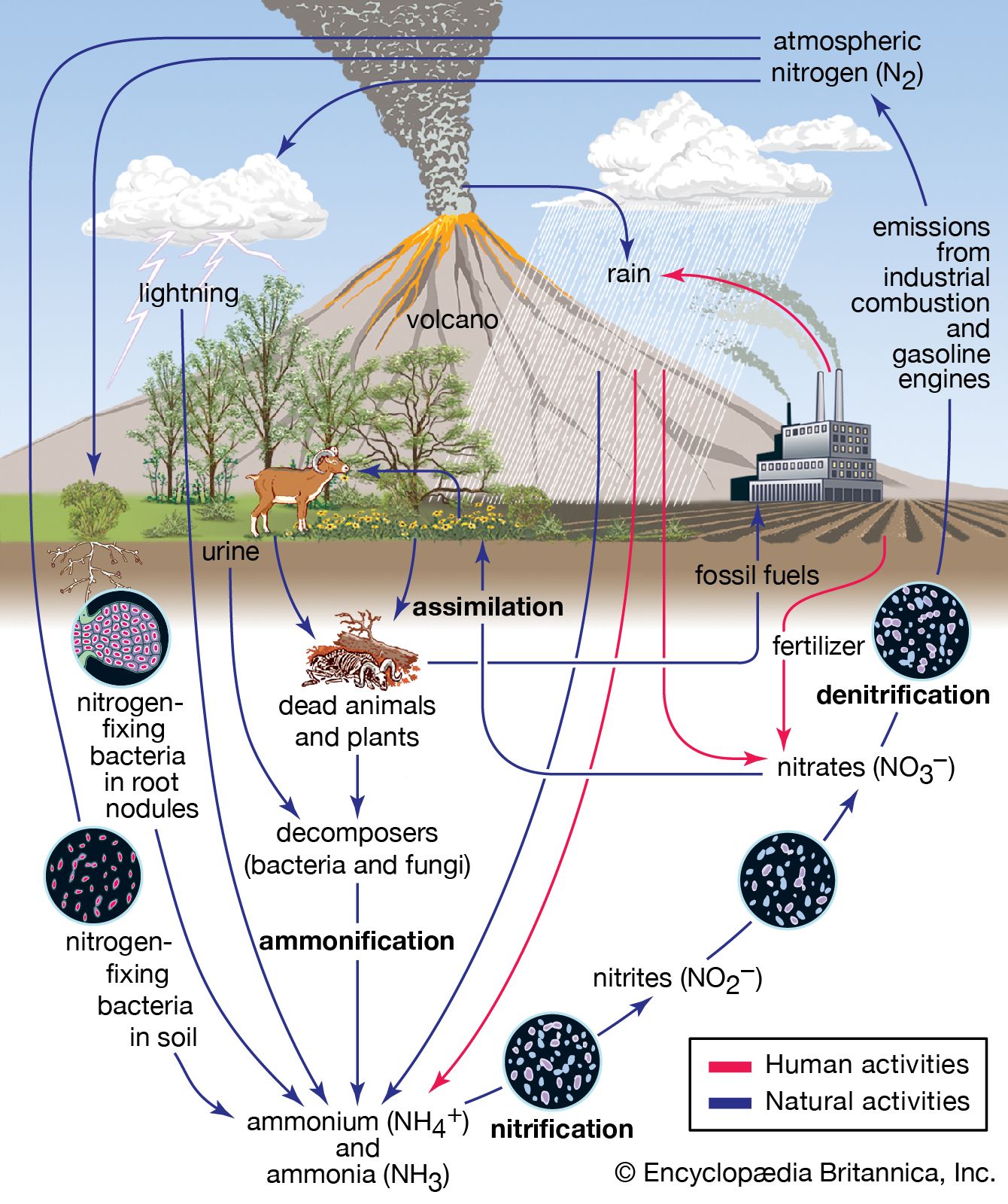
The Sun is a big ball of hot plasma and a close neighbor to Earth. Its energy output has fallen over the past five decades. The recent temperature spike is not caused solely by this. In the same time, greenhouse gas levels have risen dramatically. Our climate has seen an increase of about 0.8 degrees Celsius.
One explanation for the warming is carbon dioxide resulting from fossil fuel combustion. This gas plays an important role in photosynthesis, and is broken down by excess heat. Plants will soon die due to the increased levels of this noxious substance in the atmosphere. Only microbial life will be left to take over the planet.

Solar activity can be measured by the number and location of sunspots. There are two 11-year cycles. The sun was much bigger than it is today during the first cycle. It will be smaller over the next few years. Eventually, it will become a red giant. Its gravity will pull the planet towards it, and the orbit of the planet will change.
The Sun has a 22 year-long magnetic cycle. Not surprisingly, the solar cycle doesn't correlate with average temperatures in the lower atmosphere. So, the question remains: Is the sun heating up? Although we don’t know for certain, we do know that the sun is becoming more intense.
Other factors that affect our planet's temperature include ocean currents and the formation of mountain ranges. All of these factors are tied to the grand climate cycle. If the cycle changes in the next few months, then we may see an abrupt shift or temperature.
Another factor is Earth's natural tidal factors. These are the result the moon's relationship with Earth. Tides are lower when there is a Moon between Earth, the sun and the Moon. The tides are influenced in large part by the oceans bulging in the sun's direction. Conversely, tides are higher when the Moon appears far away from Earth. The latter is not the case, fortunately for us humans.

Another factor that makes the Sun one of the most important players in our weather is its large amount of oxygen. This gas is essential to the survival of life on Earth. However, it will soon be very difficult for them to replenish their supply. In the end, all life on Earth will disappear, with only microbial existence remaining. Our planet will become uninhabitable.
Finally, the sun, as a main sequence star is not perfect. Although parts of the sun's structure are not perfect, the sun itself is a large ball of hot Plasma. Its intensity has increased by around 40% since the sun's creation. At this point, it's about halfway through its life.
Despite its age, it's still a major contributor to the climate. Even if the planet doesn't heat up in the next century, its outer atmosphere will continue to have a negative effect on Earth's orbit.
FAQ
What is the potential of new technologies to combat climate changes?
The possibilities of new technologies for addressing this global challenge are endless. Advanced science is making it possible to shift to a more sustainable world.
For lowering greenhouse gas levels, there are new carbon capture and sequestration methods. In addition to reducing emissions from livestock and soil degrading, enhanced agricultural practices can help reduce them. Smart grid technology can also be used with existing power infrastructure for an efficiency boost, and improved building design can help minimize energy consumption.
The latest synthetic biology methods allow scientists to create organisms that can use green sources of fuel like the CO2 laser as biofuels or alternative feedstocks. This could be a major shift in transportation if there is a shift away from petrol-based vehicles to electric cars powered solely by renewable sources.
Finally, increased investment in digital technology can empower people across borders with more access to data about their ecological footprints and allow them to make better decisions regarding their consumption habits. Ultimately, understanding our role in carbon production is paramount allowing us all to be better stewards of our planet.
How does human activity affect climate change
Climate change is caused primarily by human activity. In fact, according to the Intergovernmental Panel on Climate Change (IPCC), humans are responsible for more than 70% of all global warming since the mid-20th century.
Burning fossil Fuels: The atmosphere is effected by the combustion of fossil fuels like coal, oil and gas. This increases the already high levels of atmospheric CO2, which acts as a greenhouse gas by trapping heat from Earth's sun and increasing temperatures. This can result in an increase in ocean levels due to Arctic ice melting. This creates unpredictable weather patterns that can disrupt food production and threaten human health.
Deforestation is the removal of trees that store atmospheric carbon dioxide in their trunks. This happens when they use it during photosynthesis. Deforestation also raises albedo (the amount of reflected solar radiation that is returned into space) and reduces solar heat absorption by earth's surface, thereby promoting global warming. As well decreases local air quality with deforestation being linked permanently with respiratory issues.
Farming: Each year, between 14% and 18% global anthropogenic greenhouse gases are released by the animal agriculture industry. Due to the high levels of methane bacteria in animal waste, methane gas is released into the atmosphere in large quantities. Changing your diet to less or no animal products can help reduce this contribution. Smog from ground-level ozone can harm our respiratory system and make our lives more hazardous.
Conclusion: Human activity has had a profound impact on the environment for centuries. However, technology has made it possible to leverage green innovation and make eco-friendly efforts to combat climate change. This will ensure that everyone is safe while prospering in nature.
What are the current international efforts to combat climate change?
The current state of international efforts to address climate change is one of unprecedented unity and momentum. International efforts to address climate change are being facilitated by countries around the world, who are increasingly working together to reduce carbon emissions, improve resilience and invest in renewable energies.
The Paris Agreement, which has galvanized global action and provides a framework for countries to establish voluntary targets to reduce their emissions, serves as a framework. In addition, the UN Framework Convention on Climate Change provides political guidance as well as piloting new initiatives such carbon market mechanisms.
In certain regions, there is progress as well. The European Green Deal, for instance, is a comprehensive set of legislation that aims to rebuild Europe's economy while African countries have committed to the African Renewable Energy Initiative. This Initiative aims to increase Africa’s global share of renewable energy production.
Along with policy changes, action can be observed across all sectors and industries. Cities are actively moving toward sustainable public transport systems. Society as a whole is moving towards more sustainable lifestyles. Companies invent technologies that reduce carbon emissions. Investors are shifting their capital away to renewables.
The wealthy countries represented under the OECD committee have adopted common standards for reporting national actions on climate change through the Common Reporting Framework (CFR) called the 2021 Guidelines.
These efforts demonstrate the importance of climate action. To meet climate goals, both governments and civil society must continue to build on the momentum.
How does climate change impact marine life and oceans around the globe?
What will climate change do to the oceans and marine life of the world?
Since its inception the climate change has had an impact on the world's oceans, and the marine life within them. The constant oceanic heating caused by the loss of the ozone layers causes severe disruptions to marine ecosystems, leading to coral bleaching and species declines.
Climate change is also responsible for unpredictable weather patterns and stronger storms, which can lead to dangerously high sea levels. Changes in temperature can lead to a decrease in oxygen levels, which could cause "dead zone" conditions in which marine life is scarce.
Climate change is also contributing to ocean acidification, caused by excess carbon dioxide released into the atmosphere that accumulates within the oceans. Ocean acidification alters the pH balance, which makes it impossible for some animals, like oysters, crabs, and clams to adapt.
Higher temperatures can also change the location or shrinkage of natural habitats, making them less suitable for some species. Ocean stress increases already high extinction rates worldwide, creating a severe imbalance of predators and prey which might lead eventually to complete extinction.
All ecosystems are affected by climate change. This can be directly or indirectly via evaporation, water volume reductions or sharp temperature shifts. These changes could have a devastating effect on sustainable development of marine activities and fisheries. The effects of climate change continue to impact the lives of entire species on this planet.
How does the politics of climate change impact global efforts to address it?
Climate change has become a highly politicized topic that has caused great divisions among governments, nations, and individuals. Politicians of many actors influence the implementation of actions to address climate change. It is becoming difficult to reach consensus on global efforts for addressing this urgent environmental crisis.
A majority of scientists agree that climate change caused by humans is real and must be addressed immediately. These issues are often dominated by politics, which can hinder global cooperation that is necessary to implement sustainable energy practices, protect natural habitats, research viable technological solutions, as well as other climate change interventions.
Many governments across the globe are determined to protect their own economic interests and enforce regulations that restrict business activities. This frequently clashes with the regulations that experts recommend in order to tackle climate change effectively. Without strong commitments from all participating countries and wide-scale international action, it becomes very difficult for any single state or group of states to adequately address climate change through legislation or otherwise.
Differences in power dynamics among countries further complicate gaining full consensus on how best to tackle climate change. Countries with more economic power frequently appoint their own representatives for international negotiations over the environment. This can lead lopsided discussions between countries' perceived interests and those of all other parties. A number of potential side effects that could be caused by radical changes like geoengineering were also discussed at national and international levels.
Also at the grassroots level, grassroots movements have fought against powerful opponents such as corporate ownerships. These lobbies are trying to preserve politically favorable positions for their industry especially when it is about funding research into alternative sources of energy production or enforcing Renewable Energy Technology mandates. If individual governments want to make valid progress in the subject matter themselves instead of seeking short-term benefits or spectacles, they must be clearheaded about possible outcomes.
It is essential to distribute resources properly to any intervention program, and to be mindful of political divisions within nations, if we want to see an effective coordinated effort to mitigate our current environmental crisis.
Statistics
- features Earth's average surface temperature in 2022 tied with 2015 as the fifth warmest on record, according to an analysis by NASA. (climate.nasa.gov)
- features Earth's average surface temperature in 2022 tied with 2015 as the fifth warmest on record, according to an analysis by NASA. (climate.nasa.gov)
- The 100 least-emitting countries generate 3 per cent of total emissions. (un.org)
- Indigenous peoples and local communities receive less than 1% of all climate funding despite scoring wins for people and nature Africa's broken food markets must be fixed to tackle hunger (climatechangenews.com)
- The 10 countries with the largest emissions contribute 68 percent. (un.org)
External Links
How To
How to make your home more efficient and fight climate change
Making your home energy-efficient is one of the best ways to reduce your carbon footprint, save money on utility bills, and make life more comfortable.
You must ensure that your home is properly insulated. You must ensure that your windows and doors fit properly. If you find drafts around pipes or vents, make sure to add weather stripping and fill in any gaps with caulking around door frames and window frames.
Insulate your walls, ceilings, and floors to maximize energy efficiency. Make sure to inspect the attic and any other areas in your home for air leaks.
Lighting can account up to 18% for household electricity consumption. Switch to LED light bulbs to save up to 80 percent over traditional incandescent bulbs. Installing motion sensors and timers will also help you save additional money by turning off lights as needed.
A newer model is more efficient and can help reduce your energy bills. A programmable thermostat allows you to control the temperature based on who is home and who is away.
You can replace all your windows with double-glazed windows that offer better insulation and heat resistance. Low-flow showerheads can be purchased to reduce water consumption, but still maintain sufficient pressure.
ENERGY STAR rated devices use 50 % less energy than non-certified appliances. Make sure to take care of the little details, such as unplugging TV boxes and phone chargers when not in use. This could help save you significant energy.
Overall, these few steps can significantly lower your impact on climate change, decrease monthly electricity costs, making living at home much more efficient!